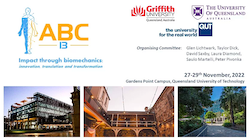Webinar - Risk Assessment: Traditional and Novel Approaches to Assess and Manage Risks Online, Online
Risk assessment is a complex process intended to protect human health by identifying drug-related hazards; determining dose-response relations for a product within relevant biological systems; and assessing exposure levels to characterize potential risks. These assessments may be conducted via traditional frameworks using data from in vitro and in vivo studies, as well as novel frameworks using pharmacokinetic and pharmacodynamic model-based prediction. Data used to assess risks are typically collected under conditions that mimic, as closely as possible, the clinical context in which a given product is intended for use. Across the mentioned frameworks, risk assessment must be based on clinically relevant information and include exposure data. Although these frameworks are intended for characterizing and putting potential risks into perspective, each is critical in managing potential clinical risks within relevant contexts to ensure patient safety. Join the discussion on traditional and novel risk assessment frameworks, the advantages and disadvantages of these frameworks and explore case studies and perspectives on current and future challenges related to them.
![]()
Advertisements









 Speakers
Speakers  Call for Papers
Call for Papers  Event Schedule
Event Schedule  Go to Event Website
Go to Event Website